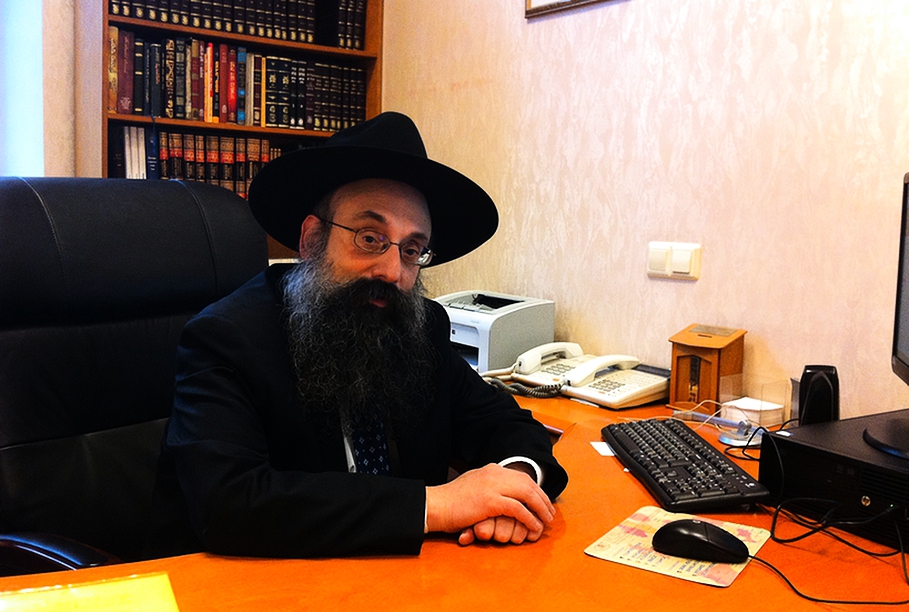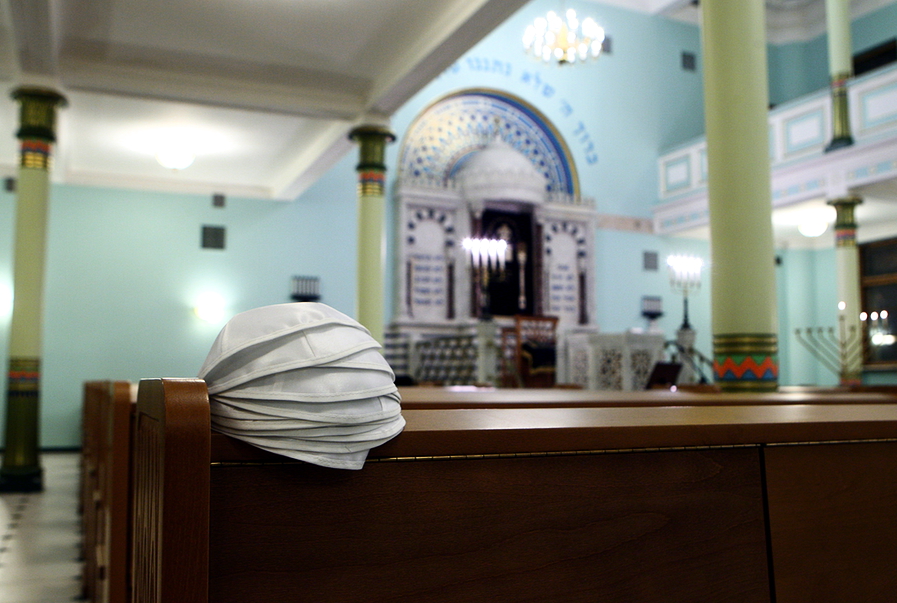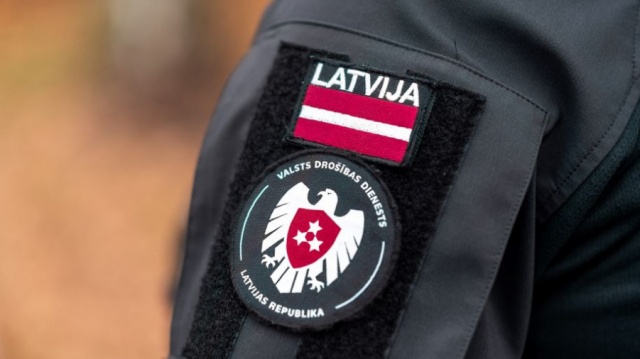Yet Latvian authorities currently have no plans to strengthen protection for the local Jewish community and its places of worship and assembly, at least for now. Indeed, the Jewish community hasn’t requested any such protection, however would certainly not object if some protective measures were envisioned.
The rabbi of Riga’s synagogue began his talk Thursday with Ivo Leitāns of Latvian Radio with a glimpse back into recent history. He recalls that in May of 1995 a bomb was thrown into the basement of the community’s house of worship in Old Town. But law enforcement authorities only boosted security patrols on the block in April of 1998 after a blast exploded by the synagogue on Peitavas street.

“I’ve lived here since 1992 and remember well there were plenty of incidents of hateful graffiti on the walls. But thank God, after the police set up their guard trailer, it only happened one more time. Now there’s video observation set up, too, and it’s been peaceful there for seventeen years,” Rabbi Glazmans told LR.
But recent times have seen terrible insecurity among Europe’s Jewish communities, where security has been bolstered at synagogues and schools. Latvia’s Interior Minister Rihards Kozlovskis (Unity) said the Security Police (DP) definitely had the task on its agenda and would rule if increased protective measures might be necessary at Jewish community objects.
“As soon as there is cause for concern, we will do it. I discussed with the chief of the DP what they’ve learned from their colleagues in Denmark, but he didn’t think there was reason to raise the terrorist threat level here,” said the Interior Minister.
Rabbi Glazmans didn’t deny that he wished the DP would think harder about how to protect his community, but believes they are professional enough to assess whether or not new measures were necessary.
“When journalists or tourists visit, they always first ask – what’s it like in Latvia regarding anti-Semitism? I always reply – I walk the streets dressed as I am now. Yes, there have been incidents when someone says an unpleasant remark, but I have no fear and feel normal. The problem is, that in Europe we now have open borders, and that worries me.
Of course it’s much better in Latvia than in France or Britain, it’s a completely different world here. I have no right or mandate to give them advice. If it really were so that round-the-clock protection were set up around our Jewish community institutions, it would of course calm my heart. But I don’t make that decision. I’d like to believe they know what they’re doing and are watching what’s going on,” the Rabbi explained.
On his part, Kozlovskis clarified that Latvia’s situation differs from western Europe’s because Islamic radicals pose but a minimal risk here. The minister didn’t deny the possibility of other forms of anti-Semitism rearing their heads, but downplayed any connection to terrorism as such.
“The foreign fighter problem has troubled western Europe for some time now. They’ve made their longstanding threats and in fact carry them out. Clearly, this is a signal that we have seen. The DP is closely monitoring the scene, and if necessary we’ll propose protective measures. But that will involve changes in the terrorism threat level. This is a complex issue and I wouldn’t wish to draw parallels to the foreign fighter threat against us,” Kozlovskis said.
Rabbi Glazmans has not meanwhile observed any unease amongst his congregation members, though he remembers times past when it has troubled them.
“I remember a few years back when a wave of Internet comments riled up the community, for instance on the issue of property restitution. Then I realized people didn’t feel comfortable and that’s not right. It shouldn’t be so. But now we have freedom of speech, so it’s complicated to fight this kind of thing. But there should be limits to this too. Unfortunately sometimes in Europe the thought that a person can freely say anything they want is more sacred than human life itself. I believe it’s more sacred to respect the other,” the Rabbi said.
Meanwhile last week a court exonerated activist Leonards Inkins of the social organization Latvietis, who had been accused of publishing criminal hate speech against Jews. Though he denied that his aim was to incite national hatred, he admitted the article he published was in protest against the Israeli Embassy’s complaints about his radio show, which promoted its getting taken off the air soon thereafter.
































